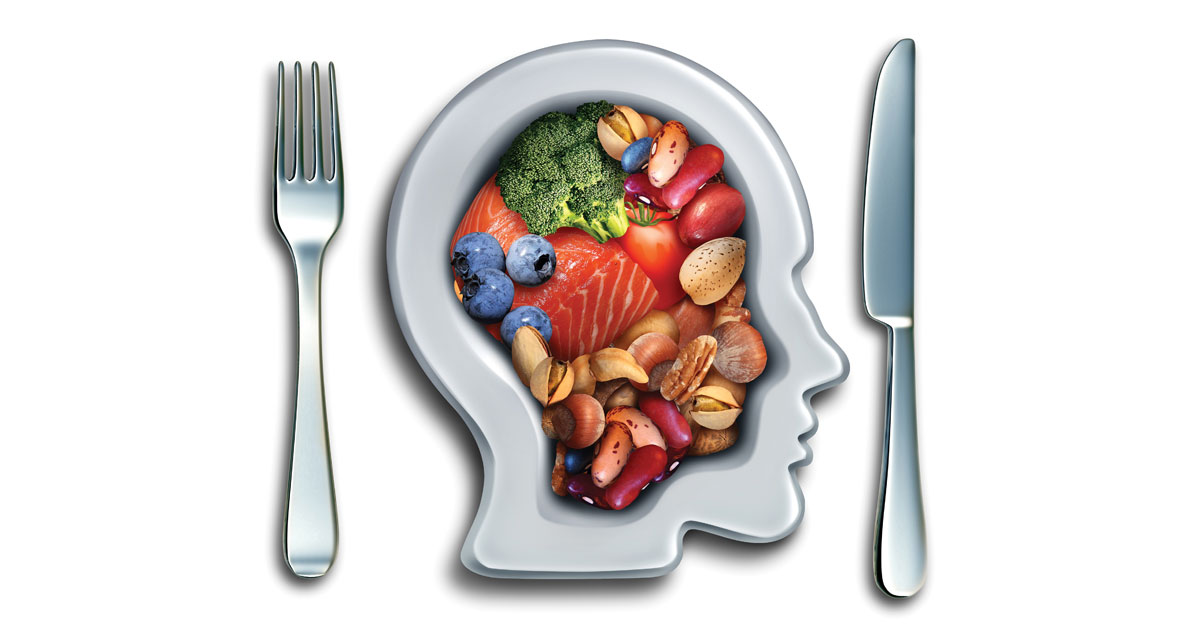Our brains control our bodies, keep our hearts beating, regulate hormones, aging, and emotions. We must take care of them if we want to keep them healthy and sane. Here’s the ideal “brain food” menu!
B vitamins are paramount in brain health. Vitamins B12, B6 and B9 (folate, or folic acid). They help to slow down cognitive decline in diseases such as dementia and Alzheimer’s, and decrease the risk of brain shrinkage associated with those diseases. Being wealthy in B vitamins gives one clear, sharp thinking, good focus and concentration, and a hefty memory. Of course, being deficient in B vitamins, especially in B12, can result in memory problems, brain fog, and poor concentration. Bank up on B vitamins! B6 is found in meats, wild salmon, bananas, avocados, potatoes, and sunflower seeds. B12 is found mainly in seafood, dairy products, soy milk, and eggs. B9 (folate) lives in fresh, raw, leafy greens, a variety of beans, and lentils.
Reading a book every day for at least 30 minutes to an hour is one of the brain’s favorite foods! Studies show that reading novels improves the brain’s connectivity and functioning. Reading definitely improves intelligence and amplifies brain power. Reading is a mental exercise that improves your memory and may help with cognitive decline that comes with age. Engaging the brain in reading may also prevent Alzheimer’s disease. Avid readers are 2.5 times less likelyto become diagnosed with the cognitive disease than those who engage in less stimulating activities in their downtime.
Almonds, aerobics, avocados, and asparagus all benefit the brain in a unique way. Almonds are high in omega-3 fatty acids and vitamin E which are brain-protecting antioxidants. Aerobic exercise helps create brain growth and protective hormone called BDNF that targets brain cells. Avocados are loaded in monosaturated fats that protect brain cells and also help maintain healthy blood pressure levels. And asparagus is high in anti-inflammatory nutrients and folate.
Iron is a critical brain food because it aids in development and helps to create neural pathways that prevent cognitive decline. Iron is needed because it helps supply oxygen to the brain by means of blood flow. Foods that are rich in iron include spinach, lentils, legumes, soybeans, broccoli, leafy vegetables, breads, and cereals.
Nuts have an adequate amount of antioxidants, healthy fats, and vitamin E that benefit the brain. Eating nuts regularly can help create a sharper memory and prevent neurodegenerative diseases, especially walnuts, which are rich in omega-3 fatty acids.
Fun, mind-stimulating games such as chess, crossword puzzles, word games, and memory games are enough to keep your mind active during your down times. Luminosity.com is loaded with brain-training games.
Omega-3 is practically a building block for your brain. It uses omega-3 to build brain and nerve cells and helps with learning and memory. Fatty fish such as salmon (especially when wild), trout, and sardines have a great wealth of omega-3s. A lack of omega-3s is linked to learning impairments and even depression. If fish is not on your personal menu, you can find omega-3 in canola oil, flaxseed, chia seeds, wild rice, eggs, soybeans, walnuts, and in dairy foods.
Oils such as olive oil and coconut oil also serve as brain food. Olive oil is rich in polyphenols which are amazing brain protective antioxidants. Coconut oil helps the brain’s neurons to use energy while fighting off free radicals. It also has saturated fat, a nutrient good for the function of brain cell membranes. Cooking with these pure oils, using them as salad dressing, or in a dip will do!
Dark chocolate provides brain boosters such as flavonoids, caffeine, and antioxidants. Flavonoids are plant oxidants that settle in the areas of the brain that control learning and memory. This compound may improve memory and slow down age-related cognitive decline. Dark chocolate is also a great mood booster!
Stacking up on blueberries is as equally rewarding as they are delicious. They send anthocyanins—an anti-inflammatory antioxidant—to the brain. This compound helps fight against stress and inflammation which, if prolonged, may contribute to neurodegeneration. The antioxidants in blueberries seem to help the communication between brain cells. Eating blueberries can also improve memory and delay short term memory loss.






















